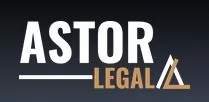William Tyrrell's foster mother has been charged with giving false or misleading evidence to the NSW Crime Commission.
The shock development follows both her and William Tyrell's foster father being charged with assaulting a child in February this year.
They both pleaded 'not guilty' and intend to defend the charge.
In January, William Tyrell's foster father was charged with two counts of knowingly giving false or misleading evidence to the NSW Crime Commission. He has pleaded not guilty to those charges as well.
Foster Mother Court Attendance Notice
The 59-year-old foster mother was served with a court attendance by detectives for knowingly giving false or misleading information to the NSW Crime Commission.
The case is listed at Downing Centre Local Court in Sydney on 24 May.
According to a statement from NSW Police, "On Tuesday, Strike Force Rosann detectives issued a Future Court Attendance Notice to a 56-year-old woman for knowingly give false or misleading evidence at a hearing."
The foster parents cannot be named for legal reasons.
Previous Common Assault Charge
Both of William Tyrrell's foster parents were charged with common assault in November last year. Those allegations related to another child – not William Tyrrell.
The pair pleaded not guilty in March.
William Tyrell's foster mother was charged in February with a further offence of common assault. That was also not related to William Tyrrell.
Search for William Tyrell Continues
The William Tyrell search commenced after the three-year-old disappeared from his foster grandmother's house in Kendall on the NSW north coast in 2014.
There was a widespread initial search for the boy, which was ultimately unsuccessful.
Police first believed that he was kidnapped. The case garnered national attention and the search continued for years.
NSW police launched a renewed effort last year. This involved searching bushland around the property where William Tyrrell was last seen.
Approximately 30 police officers spent over a month searching near Kendall, south of Port Macquarie, on the NSW mid north coast.
AFP officers also used ground penetrating radar to scan the garage of the property and in nearby bushland.
During the search, officers found pieces of cloth seeming to match the spiderman outfit Tyrrell was wearing when he disappeared, as well as bone fragments. However, nothing was deemed to be connected to the case.
A $1 million reward remains in place for information that leads to the recovery of William Tyrrell.
The Offence of Giving False or Misleading Evidence to the NSW Crime Commission
The offence of giving false or misleading evidence to the New South Wales Crime Commission is set out under section 27 of the Crime Commission Act 2012 and carries a maximum penalty of 5 years imprisonment.
To prove the offence, the prosecution must establish beyond reasonable doubt that the accused:
- appeared at a hearing before the Crime Commission,
- gave evidence that was false or misleading in a material particular, and
- knew that evidence was false or misleading.
A material particular is information which could have some bearing on the outcome of the inquiry or investigation. It does not include peripheral matters.
Defences to Giving False or Misleading Evidence to the NSW Crime Commission
The defences to giving false or misleading evidence to the NSW Crime Commission are:
- Necessity: Your actions were necessary in the circumstances
- Duress: You were forced to commit the offence
Giving False or Misleading Information
There is also a general offence of giving false or misleading information which is set out in section 307B of the Crimes Act 1900.
The maximum penalty for this offence is 2 years' imprisonment.
It is important to obtain advice from a specialist criminal defence lawyer who has successfully defended hundreds of these charges. You can view some recent assault cases here. Call Astor Legal on (02) 7804 2823. Or, you can email info@astorlegal.com.au.
Criminal lawyers in Sydney explain that to prove this offence, the prosecution must prove beyond reasonable doubt that the accused:
- gave information to another person,
- that information was false or misleading, or omitted a matter or thing without which it was false or misleading,
- knew the information was false or misleading, and
- That information was given:
- To a public authority, or
- To a person exercising or performing a power, authority, duty or function under or in connection with any NSW law, or
- In compliance or purported compliance with any NSW law.
A 'public authority' is any person or body with a legal mandate to administer or govern any aspect of public life.
This includes authorities with delegated power such as local councils, police officers and government agencies and departments.
A person exercising a power, authority, duty or function under NSW law includes judicial officers and administrators. Examples include magistrates, judges, justices, coroners and registrars.
It is important to note that the information is only 'misleading' if it is false or misleading in a material particular.

